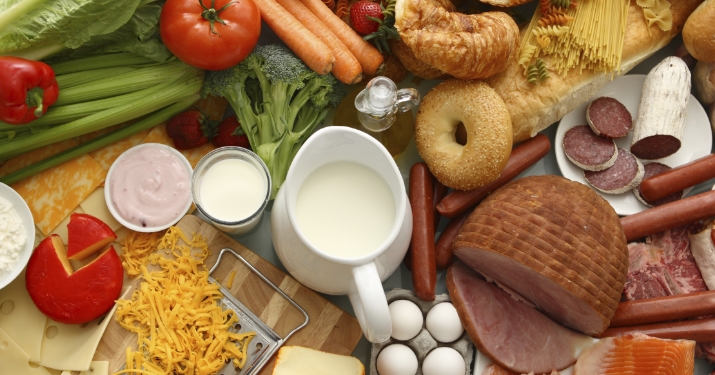Make no mistake about it — swimming can be an extreme form of cardio. Depending on your weight and swimming intensity, you can burn between 500 and 800 calories per hour taking laps (or just splashing around) in the pool.
While taking the occasional dip and sticking to a healthy diet can be a great way to lose weight, competitive swimmers, however, need to carefully consider their nutrition plans to make sure that they’re getting a solid balance of nutrients. Food is fuel — but as any gas station attendant (or coach / trainer!) will tell you, not all fuel is created equal. Here’s a guide to fueling up with a perfect mix of the best foods for swimming.

PROTEIN
For muscle repair and growth, there’s simply nothing better than protein. After every scheduled swim practice or exercise session, competitive swimmers should ingest approximately 20 grams of protein — in addition to consuming protein during daily meals. It’s essential that athletes strive for quality over quantity when it comes to their protein intake.
Healthy shakes made with plant-based or whey protein powders are a quick way for athletes to get the right amount of protein after a workout. Excellent sources of protein for daily meals include fish, lean meats like chicken or ground turkey, and plant-based foods like tofu, chickpeas, or quinoa. If you’re hungry for a protein-packed snack, opt for peanuts, almonds, pistachios, Greek yogurt, cottage cheese — or a protein bar.
CARBS
Athletes should know that while protein is fuel for muscle, carbohydrates are fuel for energy. To power through swim meets and keep posting faster scores on the record board, swimmers’ muscles need glucose — which comes straight from carbs.
However, there are good carbs and bad carbs. Good carbs are natural; bad carbs are refined. Competitive swimmers should stay away from the simple, refined carbs in cookies, pastries, sodas, and energy drinks. Instead, they should enjoy the complex, natural carbs in whole grain breads and pastas at meals. When it’s snack time, starchy and fiber-filled veggies like sweet potatoes and cooked dried beans are ideal.
FATS
Believe it or not, with the right balance of healthy fats, athletes will stay slim and keep building muscle. Of course, sticking to the correct serving size is key to tracking fat intake and controlling proper portions.
Healthy oils like coconut oil and extra virgin olive oil act as a great base for cooking — plus, avocados, nuts (and nut butters), and cheese are all full of healthy fats. When consumed in moderate amounts, they help swimmers maintain a healthy metabolism and avoid overeating after vigorous training sessions.
Between training for meets and juggling work and school obligations, it’s no secret that a competitive swimmer’s day is a long one. At times, it can be a bit annoying to prepare healthy, nutrient-dense meals and snacks in advance — but the athletes who do will be rewarded with stronger muscles and higher energy, in and out of the pool.